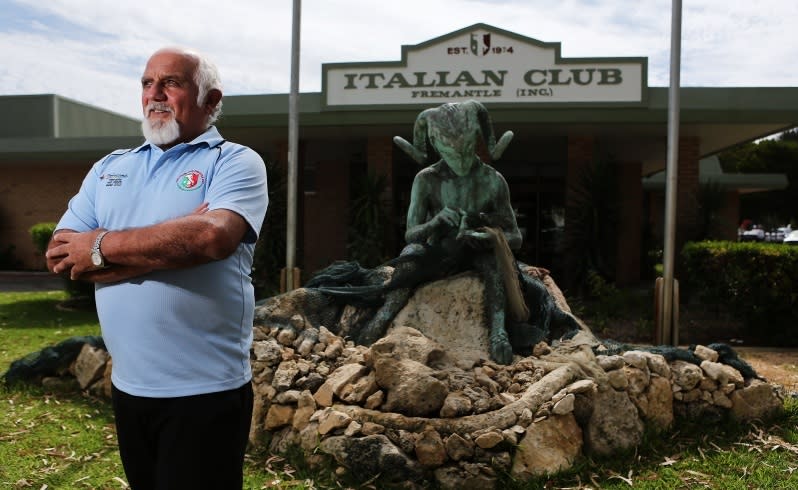Proud Italian heritage lives on in patrons
It doesn't take long after walking into the Italian Club in Fremantle to get a sense of where you are.
Snatches of Italian conversation drift down the passage past a notice board, where an editorial from _The West Australian _ is headlined "Giving thanks for our great Italian migrants".
Next to it is pinned a poster of the Socceroos and another of the stars of the soccer World Cup.
Past a chart of the Italian soccer competition's league standings, the corridor leads into the big bar area.
Beyond it a few men are playing pool, and in another room off to the side about 30 others are deep in concentration at various card tables.
Outside another group is playing bocce on one of the four covered courts. Among them is Romano Nanni, who is "over 80".
Mr Nanni said he arrived in Australia some 60 years ago from Italy. Now retired, he used to run a fruit shop and delicatessen in Beaconsfield, and he bumps into many of his former customers when he goes to the club to play cards or bocce or simply to meet friends.
Watching the game is Giuseppe Ziccardi, 78, who said he had been in Perth for 60 years and spent 47 years as a bricklayer before retiring.
Back inside, Mimmo Oteri explains the club's history and challenges. He is in a good position to know, having been a member since the club opened its doors back in 1974, and having held numerous committee positions including club president, picking up life membership along the way.
Mr Oteri, a member of a fishing family, skippered a boat for 26 years and is proud of his Italian heritage and the contribution the Italian community has made.
He said about 80 per cent of the club members had Italian heritage but it was not a prerequisite to join.
Mr Oteri said that at its peak in the mid-80s, membership hit about 1200, but it had drifted down to 634.
He said the club's big function area was used for a variety of purposes including bingo and bootscooting.
In a reflection of the club's community base, Mr Oteri said the regular dinner nights were popular too, thanks mainly to a group of women members who did the cooking.
"It's our club," he said.
"Not yours, not mine, it's ours."



